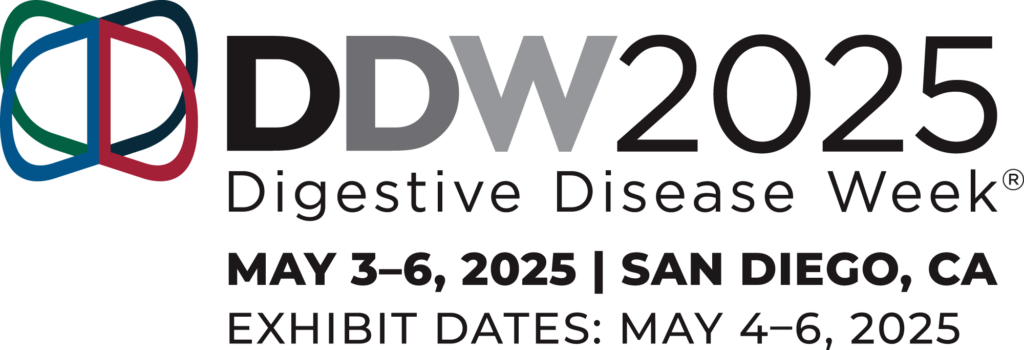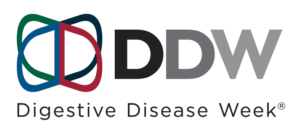CHICAGO, IL (April 28, 2023) — A procedure that uses controlled electrical pulses to induce changes to the lining of the first part of the small intestine could allow patients with Type 2 diabetes to stop taking insulin and still maintain glycemic control, according to a preliminary first-in-human study that will be presented at Digestive Disease Week® (DDW) 2023.
“The potential for controlling diabetes with a single endoscopic treatment is spectacular,” said Celine Busch, the study’s lead researcher and PhD candidate in gastroenterology at Amsterdam University Medical Center. “One of the biggest advantages of this treatment is that a single outpatient endoscopic procedure provides glycemic control, a potential improvement over drug treatment, which depends on patients taking their medication day in, day out.”
More than 37 million Americans have diabetes, and more than 90% of them have Type 2 diabetes. Type 2 diabetes most often develops in people over age 45, but more and more children, teens and young adults are also developing it. Glucose lowering medication can be expensive, and the injection of insulin has several side effects, including the risk of low blood sugar and weight gain.
In this early-stage study, 14 patients underwent an endoscopic procedure in which alternating electrical pulses were delivered to the duodenum, a portion of the lining of the small intestine just below the stomach. After the hour-long procedure, patients were discharged on the same day and then put on a calorie-controlled liquid diet for two weeks. Patients then began taking semaglutide, a diabetes medicine, titrating up to 1 mg a week.
Semaglutide on its own sometimes allows patients with Type 2 diabetes to quit taking insulin, but only in about 20% of cases, Busch said. In this study, 12 of 14 patients, or 86%, maintained good glycemic control without insulin for a year, suggesting the improvement is related to the procedure and not just to the semaglutide. Authors are beginning work on a double-blind randomized controlled trial to test these results.
“While drug therapy is ‘disease-controlling,’ it only reduces high blood sugar as long as the patient continues taking the medication,” said Jacques Bergman, MD, PhD, principal investigator on the study and professor of gastrointestinal endoscopy at Amsterdam University Medical Center. “This one procedure is ‘disease-modifying’ in that it reverses the body’s resistance to its own insulin, the root cause of the Type-2 diabetes.”
Previous researchers explored the impact of ablation, using heat to modify the lining of the small intestine, after observing that patients who underwent gastric bypass experienced improved insulin control immediately after the surgery, even before any weight loss could occur, indicating that bypassing this portion of the small intestine plays a role in the glycemic control in Type 2 diabetes.
Researchers hypothesized that chronic exposure to a high-sugar, high caloric diet results in a yet unknown change to this portion of the small intestine, making the body resistant to its own insulin, Busch said. Researchers believe rejuvenating the tissue in this part of the intestine improves the body’s ability to respond to its own insulin, particularly in patients with Type 2 diabetes whose bodies still produce some insulin.
The study was fully funded by Endogenex, a Minnesota-based company that owns the technology used for the endoscopic procedure. Dr. Bergman serves on the advisory board of Endogenex.
DDW Presentation Details
Dr. Busch will present data from the study, “Re-cellularization via electroporation therapy (ReCET) combined with GLP1ra to replace insulin therapy in patients with Type 2 diabetes: Six-month results of the EMINENT study,” abstract 1272, on Tuesday, May 9, at 4:22 p.m. CDT. For more information about featured studies, as well as a schedule of availability for featured researchers, please visit www.ddw.org/press.
###
Digestive Disease Week® (DDW) is the largest international gathering of physicians, researchers and academics in the fields of gastroenterology, hepatology, endoscopy and gastrointestinal surgery. Jointly sponsored by the American Association for the Study of Liver Diseases (AASLD), the American Gastroenterological Association (AGA) Institute, the American Society for Gastrointestinal Endoscopy (ASGE) and the Society for Surgery of the Alimentary Tract (SSAT), DDW takes place May 6 – 9 in Chicago and virtually. The meeting showcases more than 3,500 abstracts and hundreds of lectures on the latest advances in GI research, medicine and technology. More information can be found at www.ddw.org.





